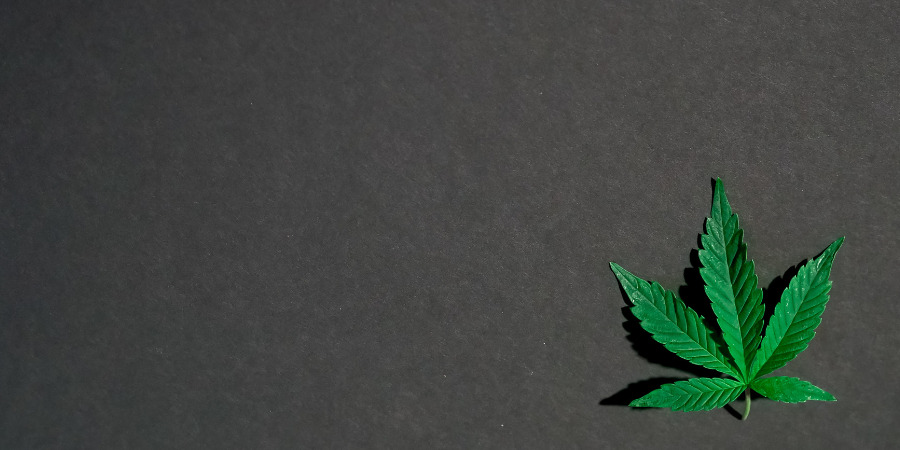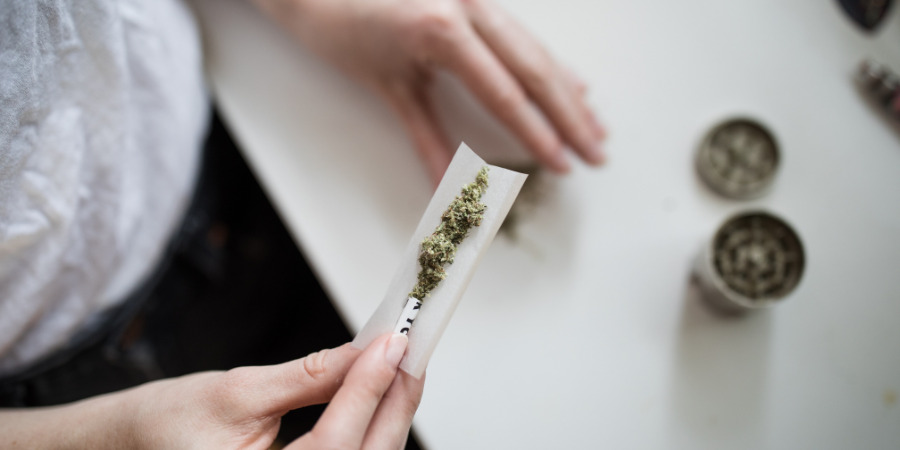Last Updated:
July 31st, 2025
Cannabis Addiction | Symptoms, Effects and Causes
What is cannabis?
Cannabis is a plant-based drug derived from the Cannabis sativa plant. It is commonly found in dried flowers, hashish (a compressed resin) and oils. The active ingredient, THC (tetrahydrocannabinol), is responsible for its psychoactive effects, making users feel relaxed, euphoric or less anxious. However, the drug also has CBD (cannabidiol), which is non-psychoactive and often linked to medicinal benefits like pain relief.
In the UK, cannabis is classified as a Class B drug, meaning it’s illegal for recreational use but may be prescribed medicinally under specific circumstances.

Is frequent cannabis usage dangerous?
While cannabis laws have been relaxed in many countries, giving an impression of safety, frequent use can still pose risks. Although studies highlight its potential benefits in medical treatments, research also points to serious drawbacks of long-term use.
One significant risk is cannabis-induced psychosis, a condition marked by hallucinations or delusions that develop during or shortly after cannabis use. Paranoid delusions are more common than hallucinations, and symptoms may require medical treatment. Unlike schizophrenia, cannabis-induced psychosis often involves less severe negative symptoms but more mood disturbances like depression or mania.
The relaxed global attitude toward cannabis might overshadow these dangers, making it difficult for the general public to understand the potential issues.
Recognising these risks is essential for anyone considering or regularly using cannabis.
Is cannabis addictive?
While cannabis is not as addictive as substances like heroin, it can still lead to psychological dependence. Many individuals come to rely on cannabis to cope with emotions or daily stressors, forming a mental reliance rather than a physical craving.
A related concern is tolerance. Regular users may find they need increasing amounts of cannabis to achieve the same effects, which can escalate use and deepen dependence. This combination of psychological reliance and tolerance often makes quitting cannabis more difficult than expected.
Withdrawal symptoms are another challenge. For heavy users, withdrawal typically begins within 24-48 hours of stopping, peaks around days 2-6, and can last up to three weeks. Common symptoms include anxiety, irritability, anger, sleep disturbances, low mood, and appetite loss. Less frequent but still notable effects include chills, headaches, muscle tension, sweating, and stomach pain.
These withdrawal symptoms can make it challenging to stop without the right support, often leading heavy users to continue using cannabis despite their intentions to quit. Seeking professional help can provide the tools and guidance necessary to break the cycle of dependence.
Struggling with an addiction? If you are ready to seek help, reach out to us today, and a member of our compassionate team will help you find the best option for starting your recovery journey.
Cannabis myth buster
Myth 1: “Cannabis is harmless because it’s natural.”
Busted: Just because something is natural doesn’t mean it’s risk-free. Smoking cannabis exposes your lungs to harmful toxins, and frequent use is linked to mental health issues like anxiety, depression and even psychosis.
Myth 2: “You can’t get addicted to cannabis.”
Busted: While it doesn’t cause physical addiction like some substances, cannabis can lead to psychological dependence, making users feel they need it to function or relax.
Myth 3: “Cannabis improves creativity.”
Busted: While some users report feeling more creative, studies suggest that cannabis can impair cognitive functions, making it harder to think clearly or solve problems.
Myth 4: “Cannabis is a good sleep aid.”
Busted: While it might help with falling asleep initially, long-term use can disrupt sleep patterns and lead to poorer quality rest.
Myth 5: “It’s not addictive because withdrawal isn’t severe.”
Busted: Withdrawal symptoms like irritability, restlessness and cravings can occur when heavy users try to quit, indicating that cannabis can be addictive.
What are the signs of cannabis addiction?
Recognising the signs of cannabis addiction in yourself or others is vital for seeking timely help. Addiction can manifest physically, psychologically and behaviourally and below, we take a look at some of the signs of cannabis addiction:
- Bloodshot eyes: A common effect of cannabis use.
- Persistent cough: Often caused by smoking cannabis.
- Increased appetite: Known as the “munchies.”
- Lethargy: Frequent fatigue or lack of energy.
- Weight changes: Either weight gain from overeating or loss due to neglected nutrition.
- Anxiety: Feeling uneasy or worried without a clear reason.
- Depression: Persistent low moods linked to long-term use.
- Paranoia: Intense distrust or fear, especially after using cannabis.
- Memory issues: Struggling to recall recent events or conversations.
- Cravings: A strong urge to use cannabis regularly.
- Isolation: Preferring to stay alone to use cannabis.
- Neglecting responsibilities: Missing work or school due to usage.
- Financial issues: Spending excessive money on cannabis.
- Secretiveness: Hiding the amount or frequency of use from others.
- Decreased motivation: Losing interest in hobbies or goals.
Do I have a cannabis addiction?
Addiction can develop quietly, only becoming apparent when it’s deeply ingrained. If you use cannabis, staying aware of your habits is crucial. Reflecting on the following questions can help you assess whether your usage may indicate an addiction:
- Do you find yourself needing cannabis more frequently or in larger amounts to feel its effects?
- Have you tried cutting down or quitting cannabis but struggled to do so?
- Do you spend significant time thinking about, obtaining or using cannabis?
- Has your cannabis use caused issues in your relationships, work or responsibilities?
- Do you feel irritable, anxious or restless when not using cannabis?
- Has cannabis become a priority over activities you once enjoyed?
If you’ve answered ‘yes’ to one or more of these questions, it may be time to reconsider your relationship with cannabis and seek professional support.
How is cannabis addiction treated?
Overcoming cannabis addiction requires a tailored approach to address both physical and psychological challenges. Treatment programmes often follow a structured process designed to support recovery and prevent relapse.
The first step in treatment is an initial assessment to understand the individual’s needs. If a detox is necessary, it is conducted under medical supervision to manage withdrawal symptoms safely.
The cornerstone of cannabis rehab therapy is also available. Therapeutic interventions, such as Cognitive Behavioural Therapy (CBT) and Dialectical Behaviour Therapy (DBT), focus on managing emotions effectively. Group therapy offers peer support, while one-to-one counselling provides a safe space to explore personal challenges.
Aftercare plans are an essential part of the recovery journey. They provide continued support, helping individuals transition back to daily life while maintaining their sobriety. With regular check-ins and access to resources, aftercare ensures sustainable recovery.
Take the first step
If you or a loved one is struggling with cannabis addiction, don’t wait for things to worsen. Reach out to a rehab centre today and start your journey toward a healthier, addiction-free life. Professional help can provide the support and guidance you need to regain control.
Our compassionate team are ready and available to take your call, and guide you towards lasting the lasting addiction recovery you deserve.
Frequently Asked Questions
(Click here to see works cited)
-
- “Cannabis-Induced Psychosis.” Cannabis-Induced Psychosis – an Overview | ScienceDirect Topics, www.sciencedirect.com/topics/neuroscience/cannabis-induced-psychosis. Accessed 17 Dec. 2024.
- Connor JP, Stjepanović D, Budney AJ, Le Foll B, Hall WD. Clinical management of cannabis withdrawal. Addiction. 2022 Jul;117(7):2075-2095. doi: 10.1111/add.15743. Epub 2022 Jan 10. PMID: 34791767; PMCID: PMC9110555.


